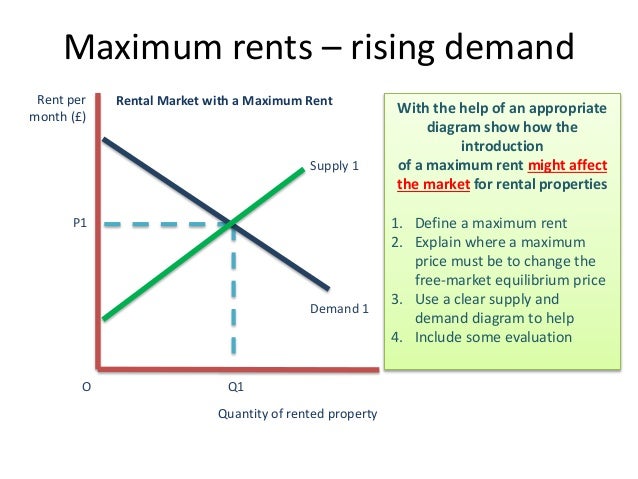Tenant Rights Under Threat: The Impact Of New Rent Regulations

Table of Contents
Understanding the New Rent Regulations
The landscape of tenant rights is constantly shifting with the introduction of new rent regulations. These regulations vary significantly by state and even locality, making it essential to understand the specifics where you live. Key features often included in these regulations involve rent control caps, stricter "just cause" eviction requirements, and limitations on late fees and other charges.
-
Specific examples of new regulations and their potential impact: Some regulations might cap annual rent increases at a certain percentage (e.g., 3% or 5%), while others might allow for exceptions based on significant capital improvements to the property. This can impact both the affordability and stability of your housing situation. Some jurisdictions also limit the fees landlords can charge for late rent payments.
-
Areas where regulations differ across jurisdictions: Rent control laws, for instance, are far more common in some states than others. Similarly, the definition of "just cause" for eviction can vary dramatically, impacting the security and predictability of your tenancy. Some areas might have stronger protections for tenants facing eviction than others.
-
Resources for finding specific regulations in your area: The best place to find your local rent regulations is through your state or local government's housing authority website. You can often find detailed information about rent control, eviction laws, and other tenant protections. Searching "[Your State] tenant rights" or "[Your City] rent regulations" online will also yield relevant results.
The Impact on Rent Increases
One of the most significant impacts of new rent regulations is on rent increases. These regulations often aim to curb excessive rent hikes and prevent displacement. However, the specifics can vary widely.
-
Examples of permissible and impermissible rent increases under the new rules: Permissible increases might be limited to a percentage of the previous year's rent, with allowances for capital improvements or increases tied to inflation. Impermissible increases would exceed these legally defined limits.
-
Potential loopholes landlords might try to exploit: Landlords might attempt to circumvent rent control by increasing fees for services like parking or utilities, or by attempting to classify necessary repairs as capital improvements to justify larger rent hikes.
-
How to challenge unlawful rent increases: If you believe your landlord has raised your rent illegally, you should first review your lease agreement and the local rent regulations. Document all communication with your landlord and then consider contacting your local tenant rights organization or seeking legal counsel.
Eviction Protections Under the New Laws
New rent regulations often include significant changes to eviction procedures and protections, aiming to make evictions more difficult for landlords unless there's a legitimate reason.
-
Explanation of "just cause" eviction requirements: "Just cause" typically means that a landlord can only evict a tenant for specific reasons, such as non-payment of rent, violation of the lease agreement, or needed property repairs. This eliminates the possibility of "no-cause" evictions where a landlord can evict a tenant without any specific reason.
-
Required notice periods before eviction: New regulations generally mandate longer notice periods before eviction than previously existed, giving tenants more time to find new housing or resolve the issue leading to the eviction.
-
Steps tenants should take if faced with an eviction notice: If served with an eviction notice, carefully review the notice for accuracy and legality. Contact your local tenant rights organization or seek legal advice immediately. Keep records of all communication with your landlord and any attempts to resolve the situation.
-
Resources for legal assistance in eviction cases: Many non-profit organizations and legal aid societies provide free or low-cost legal assistance to tenants facing eviction. Legal aid websites and your local bar association can help you locate these resources.
Other Tenant Rights Affected by Rent Regulations
Rent regulations often impact tenant rights beyond rent increases and evictions.
-
Discussion of landlord responsibilities regarding repairs and maintenance: Regulations typically outline a landlord's responsibility to maintain habitable living conditions, addressing necessary repairs in a timely manner. Failure to do so can provide grounds for legal action by the tenant.
-
Procedures for securing security deposit returns: Regulations often detail the process for receiving your security deposit back after moving out, including timelines and requirements for documentation.
-
Legal implications for tenant organizing and collective bargaining: Some regulations explicitly protect tenants' rights to organize and collectively bargain with landlords to improve living conditions and address concerns.
Navigating the Changes and Protecting Your Rights
Successfully navigating the complexities of new rent regulations requires proactive steps and a good understanding of your rights.
-
Importance of carefully reading your lease agreement: Your lease is a legally binding document. Review it thoroughly and understand all terms and conditions.
-
Keeping accurate records of rent payments and communication with your landlord: Maintain detailed records of all rent payments, communication with your landlord (emails, letters, texts), and any repair requests or complaints.
-
Seeking legal advice if necessary: Don't hesitate to seek legal advice from a tenant rights organization or attorney if you have questions or concerns about your rights.
-
Links to tenant advocacy groups and legal aid organizations: Numerous organizations dedicated to tenant rights offer valuable resources, advice, and legal assistance. Searching online for "[Your State] tenant rights organization" will provide relevant links.
Conclusion:
The implementation of new rent regulations presents both opportunities and challenges for tenants. Understanding your rights under these new laws is crucial to protecting yourself from unfair practices and ensuring safe and stable housing. By familiarizing yourself with the specifics of your local regulations, keeping detailed records, and seeking legal advice when needed, you can effectively navigate these changes and safeguard your tenancy. Stay informed about updates to rent regulations and advocate for fair housing policies to ensure your rights are protected. Remember to consult legal professionals for advice specific to your situation and location. Knowing your rights regarding rent regulation is your first step toward secure and affordable housing.

Featured Posts
-
 Cabinet Invests E750 Million In Green Home Loan Expansion Accessing Eu Climate Funds
May 28, 2025
Cabinet Invests E750 Million In Green Home Loan Expansion Accessing Eu Climate Funds
May 28, 2025 -
 Government To Scale Back Rent Controls Impact On Rental Market
May 28, 2025
Government To Scale Back Rent Controls Impact On Rental Market
May 28, 2025 -
 Photographic Evidence Jannik Sinner And Pope Leo Xiv At The Italian Open
May 28, 2025
Photographic Evidence Jannik Sinner And Pope Leo Xiv At The Italian Open
May 28, 2025 -
 Understanding The April Outlook Update Changes And Enhancements
May 28, 2025
Understanding The April Outlook Update Changes And Enhancements
May 28, 2025 -
 Mondays Metro Detroit Weather Cool Start Sunny Finish
May 28, 2025
Mondays Metro Detroit Weather Cool Start Sunny Finish
May 28, 2025
Latest Posts
-
 Exploring The Differences Between Rosemary And Thyme Flavor Profiles And Uses
May 31, 2025
Exploring The Differences Between Rosemary And Thyme Flavor Profiles And Uses
May 31, 2025 -
 Rosemary And Thyme Recipes Simple Dishes With Big Flavor
May 31, 2025
Rosemary And Thyme Recipes Simple Dishes With Big Flavor
May 31, 2025 -
 Duncan Bannatynes Support For Life Changing Childrens Charity In Morocco
May 31, 2025
Duncan Bannatynes Support For Life Changing Childrens Charity In Morocco
May 31, 2025 -
 Dragon Dens Duncan Bannatyne Supports Moroccan Childrens Charity
May 31, 2025
Dragon Dens Duncan Bannatyne Supports Moroccan Childrens Charity
May 31, 2025 -
 Achieving The Good Life A Step By Step Guide For Lasting Fulfillment
May 31, 2025
Achieving The Good Life A Step By Step Guide For Lasting Fulfillment
May 31, 2025
